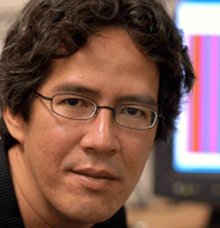SUMMARY
This is AI generated summarization, which may have errors. For context, always refer to the full article.

“Didn’t you think it would be better to buy hospital beds than use the money for stem cell research?” asked Senator Nancy Binay in her questioning of government secretaries on their use of the Disbursement Acceleration Program (DAP).
The question she asked has spread across the country, with many taking the question to mean: When we have so many problems in the country, is funding scientific research really a good use of our money?
It is a fair question to ask, and the answer is both simple and complicated.
We support scientific research because one thing is clear and unquestioned – the sustained growth of any economy, and its ability to provide for its people, is based on a strong base of science and technological research.
The complication arises, however, when we see poor people begging in the streets, or people suffering from lack of clean water, or farmers’ children who cannot go to school. Our instinct is to immediately help them. It seems like common sense. In societies such as ours, the poor have so many needs that spending on science and technology seems frivolous.
And yet scientific research is at the heart of economic prosperity that we cannot afford not to do it. There is a reason that Singapore spends more than 2% of its Gross Domestic Product (GDP) on research and development, or Japan and Korea spends nearly 4% of their GDP.
It is not that these countries are so rich that they can afford to invest in science and technology. It is that they understand that they are rich precisely because they have invested so heavily in research and development.
In the Philippines, we spend less than 0.1% of our GDP on science and technology, and I do not think anyone will question that it is too little. Spending on science and technology is an investment that we, as a society, need to affirm. Yes, there are many needs we have, but we cannot afford not to invest in our scientific infrastructure. To turn our back on science and technology will inevitably condemn our country to perpetual economic backwardness.
Products of research
What would we get out of spending our hard-earned money on science?
Two things. First, of course, there are the products of research itself. By probing the secrets of nature, we can learn to harness them better to develop products that can boost our economy, or new drugs to help our people fight disease, or new crops to feed everyone.
Second, by investing in research we increase the technological capacity of our country’s scientists. When our scientists carry out research, they sharpen their technical skills, they learn how to confront the unknown, and they gain confidence in their abilities to solve problems and find answers.
We should not forget the importance of this second dividend, of how vital it is to have our own scientific expertise in the country.
In the 21st century, we are increasingly wrapped in a technological world where we, as a society, need make decisions. We cannot always rely on foreign scientists and engineers and doctors to tell us what technical choices we should make. Investing on our own scientists and their research allows us to make those technical choices for ourselves. The alternative is to depend on the expertise of outsiders to make these decisions for us.
But why stem cell research? With so many medical issues in the Philippines, why fund what seems an esoteric field far removed from the many infectious diseases that plague our people?
I do not know really know the answer to this, but in a sense this is the point of scientific research. We do not know where the big breakthroughs will come from. It is well known that technologies that resulted in major economic or health advances came from research that may have had nothing to do with their later practical application.
I personally would have invested on some other research area, but you know what – I can’t predict the future. And as a scientist myself, I have stopped trying to figure out which obscure research is going to become important for the health and welfare of people.
Several decades ago, scientists studied an obscure bacterium from a hot spring, not because it was important, but because they were just curious. And you know what? An enzyme from that bacterium, Thermus aquaticus, is now a central ingredient to a very large portion of medical and agricultural research. Studying that obscure microbe has probably generated more than $200 B of subsequent development, laying the foundation for many treatments, drugs and new crop varieties.
When Senator Binay asked her question, she was in a sense asking something that every society also asks itself. In the face of so many immediate needs, how much should we spend on science and technology?
How we answer the question will determine the future of our economy and society. – Rappler.com
Michael D. Purugganan is a Filipino scientist, and a Professor of Biology and the Dean for Science at New York University. He sits on the Council of Scientists of the International Human Frontier Science Program, and on the Biological Sciences Advisory Committee of the US National Science Foundation.
Add a comment
How does this make you feel?
There are no comments yet. Add your comment to start the conversation.